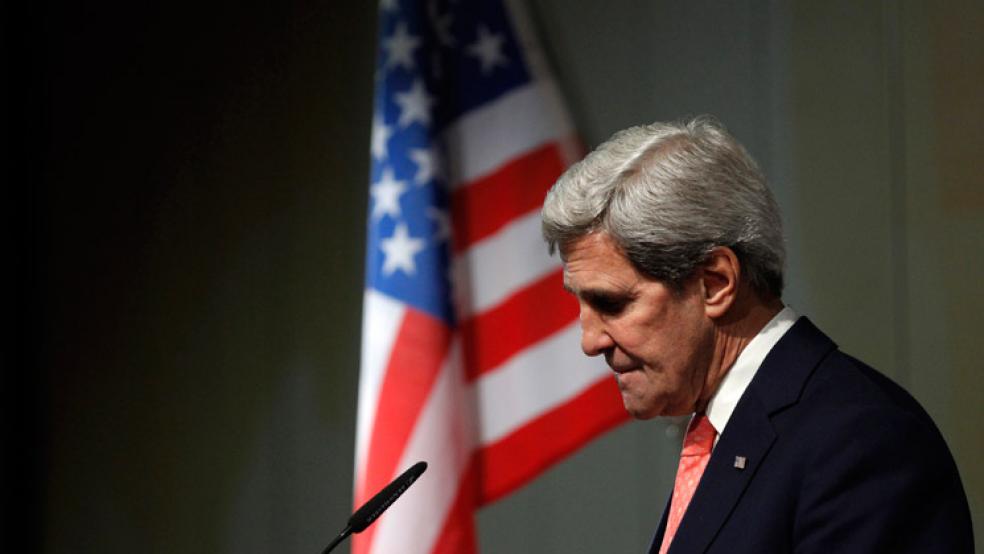 Late last week, it appeared that Iran and the United States, along with five other world powers, were close to reaching a deal on Tehran’s nuclear program. Then one of these allies broke a sacrosanct rule of international diplomacy – and publicly disagreed with the others.
Late last week, it appeared that Iran and the United States, along with five other world powers, were close to reaching a deal on Tehran’s nuclear program. Then one of these allies broke a sacrosanct rule of international diplomacy – and publicly disagreed with the others.
France, which had been negotiating alongside the United States, Russia, China, United Kingdom, and Germany, said on Sunday that the deal on the table was too lenient on Iran because it allowed uranium enrichment for peaceful purposes. This scuttled a preliminary deal that would have allowed for more detailed discussion on containing Iran’s nuclear program.
Related: Why a Deal with Iran on Nukes Remains Elusive
“One wants a deal … but not a sucker’s deal,” French Foreign Minister Laurent Fabius said.
Iranian media is now vilifying France, and some in Washington are questioning that country’s motivation for killing talks. But Alex Vatanka, a specialist in Middle East issues, said France is being unfairly blamed.
“I’d be careful of blaming the French for everything,” he said in an interview. “At the end of the day, no one expected the talks to produce a grand bargain last week. The hope is that you can build on this. Talks in 10 days’ time will be a step in the right direction.” (The talks are slated to continue November 20.)
Instead, experts said, the biggest threat to a deal comes from hardliners in Iran, who insist on the right to enrichment. U.S. lawmakers pushing for a more stringent deal are also threatening the talks. The delay has allowed time for each side to grow more wary of the other.
“The problems are in Congress, and we’re not quite sure what’s at play in Iran,” said Allen Keiswetter, a former Foreign Service officer and adjunct professor at the University of Maryland. “There will be skeptics… The longer this continues, the more chance there is for someone to derail things.”
Lobbying Effort Underway
Despite lobbying from the White House, some U.S. lawmakers believe that sanctions against Iran need to be strengthened, and that any deal allowing uranium enrichment is too merciful. This includes the influential Sen. John McCain (R-AZ), who tweeted, “#France had the courage to prevent a bad nuclear agreement with #Iran. Vive la France!” when the deal fell apart.
Undecided lawmakers are about to get an earful about why this deal is a bad one. Israel has unleashed an army of lobbyists on Capitol Hill to convince lawmakers to reject a deal that allows Iran’s nuclear program to continue in any form, according to media reports.
“Before the talks resume, we will lobby dozens of members of the U.S. Congress to whom I will personally explain during a visit beginning on Tuesday that Israel’s security is in jeopardy,” Economy Minister Naftali Bennett told an Israeli radio station.
It’s not just American lawmakers who are being lobbied. Iranian President Hassan Rouhani presents himself as moderate. But more radical elements of the Iranian government, as well as those representing radical interests outside of government, will push Rouhani to reject any deal that forbids enrichment.
“The Iranians are insisting on enrichment, which I don’t see them giving up. The western powers want to make sure there are no Iranian bombs at the end of this,” Vatanka, the Middle East specialist, said. “People talk about the end product, but no one knows what the final package will look like. They only know what each side’s minimum requirement is.”
Optimism Ahead of Nov. 20
Despite these obstacles, Keiswetter said he is optimistic that a deal that satisfies both sides can be struck.
“I think the negotiations have momentum to them. The Iranians want to have sanctions relief, and they want it soon,” he said.
But he also urged patience, saying, “The enrichment issue is for the end game, and we’re only now in the game.”
Top Reads from The Fiscal Times:





